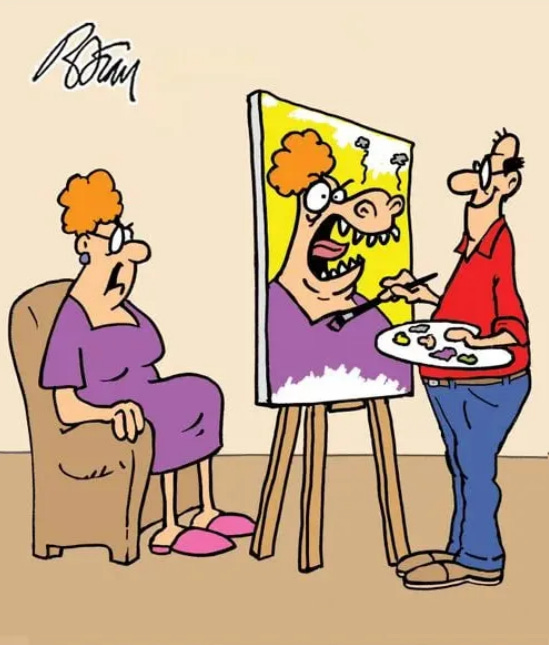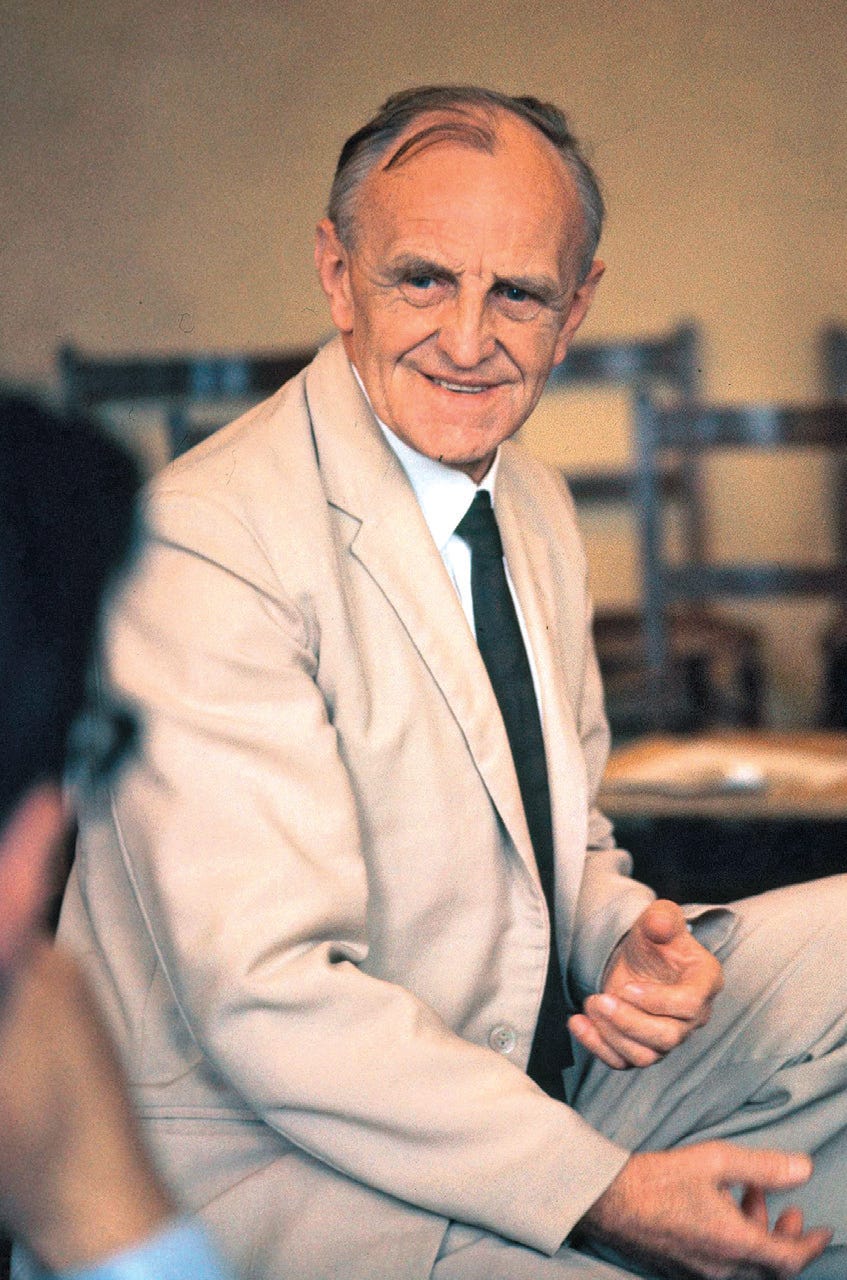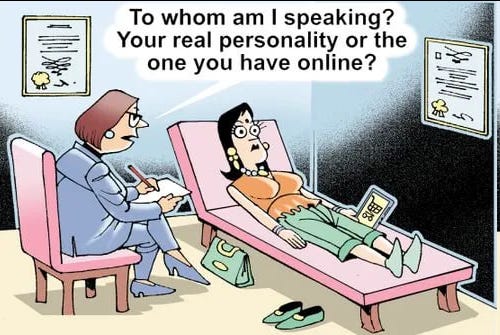………………………………………………………………………………………………………………………….
What is the False Self ?
Dr David Maloney Psychotherapy
VIDEO :
https://www.youtube.com/watch?v=pg7hLSVq7To
…………………………………………………………………………………………………………………………
Donald W. Winnicott
(1896−1971), the British psychoanalyst and pediatrician Donald Woods Winnicott is considered one of the most influential representatives of British object relations theory. He made particular contributions to the field of child psychology. The starting point for his theoretical considerations is the infant's “absolute dependence” on a supportive environment, usually on its mother. Sufficiently good maternal care holding-function ] enables the child's development, which progresses from absolute dependence through relative dependence to approaching independence . A highly significant and particularly crisis-prone developmental task for the small child is to give up the original omnipotent life, to differentiate the inner world from the outer world and to recognize reality in ever more differentiated ways. In this context, Winnicott introduces his central concepts of the transition phenomenon , the transition object and the transitional space . Winnicott also coined the terms true and false self . By the true self he understands the individual, constitutionally given disposition of the child, through the development of which a personal psych. Reality and a personal body schema can be acquired. The true self represents the source of authenticity. The development of a false self occurs when the mother's adaptation to the infant's needs was not good enough. The function of erecting the false self is to protect and hide the true self. In addition to his wide-ranging theoretical achievements, Winnicott has researched the treatment of early-disordered and psychotic patients as well as the development of new methods in child psychology. (e.g. the Squiggle game ) made a name for itself.
Source :
https://dorsch.hogrefe.com/stichwort/winnicott-donald-w
…………………………………………………………………………………………………………………………
The False Self: Being Yourself isn’t Easy, but it’s Worth It
https://growththruchange.com/2021/03/05/the-false-self-being-yourself-isnt-easy-but-its-worth-it/
Do you feel like you’re wearing a mask under your mask?
Have you ever gotten the advice to “just be yourself”?
What does that even mean?
Is it even safe to be yourself around everyone you meet?
We all have different sides to us: work self, social self, family self, date self, the list is endless. These healthy false selves protect us from screwing up, it keeps us safe from exposing our true self to unsafe people and situations. Many of us don’t feel as though we know ourselves. When we are unable to be our true self, we can feel dead inside, unable to trust our intuition, lost. The unhealthy false self is created early on in life as a protective measure against being cast out from our families.
Early on children take in their environment, they are aware of what’s going on not cognitively but instinctually. They have to be in order to survive, in order to be loved and accepted. This is where the unhealthy self develops, and our true self hides away.
Early Childhood Influences A Lot In Life
When a child grows up with a primary caregiver who is unresponsive, neglectful, cold, and/or quick-tempered a child begins to “need” the caregiver less. They adapt to the needs of the caregiver and not their own. This is troublesome as babies need the space to explore their emotions and physicality in a warm and loving environment. They need the space to explore their range of emotions as this is the first time, they are experiencing absolutely everything.
Just imagine what it would be like to spend 9 months inside a dark warm space where all your needs are met to all of a sudden bombarded with our world of colors, sounds, smells, and so forth. Sounds anxiety provoking to me.
Babies act instinctively when they are upset or happy. Having a caregiver that can “survive” the “attacks” (emotions) helps children learn to regulate their emotions, which includes accepting and understanding themselves. When a child does not grow up in a “safe” space they learn to hide their needs and wants in order to appease the primary caregiver. From the very beginning children need their parents to survive and not just for sustenance and shelter but for human touch, our kind words, encouragement, and love. They learn they can survive their emotions as well; they know that they are accepted for who they are. When they are denied this, they hide their true self, it becomes small and hidden in order to be loved.
This is where the unhealthy false self takes over. In order to feel loved children must acclimate to their caregivers needs and affects. If they don’t they are met with the psyche pain of the lost love object (the parent). This is when the child feels hatred towards their caregiver but consciously cannot process the anger because they need and love their caregiver to survive. This hatred the child feels gets turned inward, it’s not safe to hate your parents but it is safe to hate yourself, resulting in a myriad of mental health problems, particularly depression. If the child cannot be loved and accepted for who they are they must renounce their needs, themselves, in order to feel a semblance of love and safety.
Why Does This Happen?
This occurs when the primary caregiver is suffering from their own internal struggles – denied their own needs as children, these acts are often unconscious. Many people intend to care and love for their children as best they know how but if their needs were denied as children, without the help of a reparative relationship, it can be hard for them to take care of someone else’s needs, they may even resent having to. The prominent psychoanalyst Winnicott has a theory about the “good enough mother”, though it is no longer only mother’s work to be the primary caregiver, the concept is still valid. We don’t need to be the perfect parent or caregiver; perfectionism is a killer of life. It has no purpose other than to make us feel less than.
How do we overcome this?
How do we allow our true self to safely come out of hiding?
In psychotherapy, we can explore what it means to be human, to be ourselves. Therapists hold that safe space we were not given in our younger years. This allows their client’s room to move through their emotions, to discover their hidden desires. In a sense therapists allow their clients to “play”; they’re allowed to be angry, resentful, wilful, childish, selfish, excited, playful, creative, all the things they had to deny themselves in order to be safe. The therapist will be able to weather the storm and stay whole and present for the client. Showing the client, they are able to be themselves without repercussions, without destroying their loved ones.
With the help of a therapist, we can overcome our traumas and rediscover our true self and create a healthy false self. The healthy false self is what keeps us from blowing an interview or telling the wrong person about our struggles. We need a healthy false sense to keep us safe till a person or place is deemed safe to be ourselves.
Although many people can seemingly live successful lives with an unhealthy false self it does not mean they are not hurting on the inside. There’s great pain within people who do not feel safe and accepted, they don’t even know how to accept themselves. Psychotherapy is here to help you find your true self, your meaning, your peace. Learn to live your life without the burden of your past to create a better future for the next generation.
If any of these topics interest you and would like to discuss it further reach out to set up a consultation:
Reach out to learn more about anxiety therapy.
https://growththruchange.com/staff/therapists/
Yours truly,
Natalie Czaplicki, M.S.Ed. & M.Phil.Ed
Other Related Resources :
For more information on the subjects in this blog check out these other resources:
https://growththruchange.com/2018/03/06/really-true-self-vs-false-self/
https://www.theschooloflife.com/thebookoflife/the-great-psychoanalysts-donald-winnicott/
https://therapeia.org.uk/ttr/2016/04/12/depression-and-the-lost-object/
………………………………………………………………………………………………………………….
You're not fooling anybody but yourself.
……………………………………………………………………………………………………………………








Interesting exposition, but I would disagree that the idea of a "false self" stems from the 1960's. I would say it is at least 5000 years older than that, in terms of the persona as the mask that we show the world, vs. our deeper self. In astrology, this is represented by the ascending sign - the face we show the world, versus the Sun sign, which is our true nature, while the Moon represents our emotions.
In a more rigorous sense, looking at it from a standpoint of non-dualism, our true self would be our spiritual essence, called our soul in some traditions, as distinct from our individual identity represented by our bodily self, which would be the false self.